 Hartman offers new methodological pistes for literary critics working in archives and shows how literary studies can learn from the wayward lives of women like Esther Brown to expand its understandings of creative practices. Reading Hartman reminds us of the political imperative to interrogate spaces and structures of oppression, confinement and conformism from the perspective – speculative if necessary – of those who resist them.
Hartman offers new methodological pistes for literary critics working in archives and shows how literary studies can learn from the wayward lives of women like Esther Brown to expand its understandings of creative practices. Reading Hartman reminds us of the political imperative to interrogate spaces and structures of oppression, confinement and conformism from the perspective – speculative if necessary – of those who resist them.
04.06.2019 | by Alexandra Reza
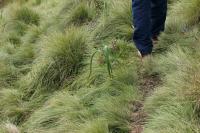 The increasing centrality of the voices of black and Afro-descendent people in Portugal, speaking out against racism and the inequality of opportunity that it generates, is the best guide to how to reconfigure an ancestry that deserves to be revived and reinvented.
The increasing centrality of the voices of black and Afro-descendent people in Portugal, speaking out against racism and the inequality of opportunity that it generates, is the best guide to how to reconfigure an ancestry that deserves to be revived and reinvented.
26.05.2019 | by Bruno Sena Martins
 Os “Congos” foram vários e o “Congoísmo” revelou-se maleável na forma e conteúdo, mas estável na utilidade. Assim sendo, a invocação da sua história e da sua memória só pode ser muito cautelosa. Aspecto importante, requer ainda que se considere a sua história não-europeia, a sua natureza transnacional, transregional e transatlântica, mas também no próprio continente africano. Que não se anule diversidade de actores, instituições, “discursos” e imagens, motivações e interesses.
Os “Congos” foram vários e o “Congoísmo” revelou-se maleável na forma e conteúdo, mas estável na utilidade. Assim sendo, a invocação da sua história e da sua memória só pode ser muito cautelosa. Aspecto importante, requer ainda que se considere a sua história não-europeia, a sua natureza transnacional, transregional e transatlântica, mas também no próprio continente africano. Que não se anule diversidade de actores, instituições, “discursos” e imagens, motivações e interesses.
21.05.2019 | by Miguel Bandeira Jerónimo
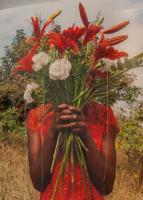 Reflection on the transgenerational dimensions of the notion of memory is, however, of course, much earlier than Hirsch’s proposal. In particular in Holocaust literature, the construction of a memory of the “not-lived”, characteristic of the postmemorial gesture, builds up a model that can be abundantly traced and that, precisely due to the power of the paradigm of confrontation with the Holocaust or the ensemble of studies on violence, trauma and memory, deserves particular attention.
Reflection on the transgenerational dimensions of the notion of memory is, however, of course, much earlier than Hirsch’s proposal. In particular in Holocaust literature, the construction of a memory of the “not-lived”, characteristic of the postmemorial gesture, builds up a model that can be abundantly traced and that, precisely due to the power of the paradigm of confrontation with the Holocaust or the ensemble of studies on violence, trauma and memory, deserves particular attention.
04.05.2019 | by António Sousa Ribeiro
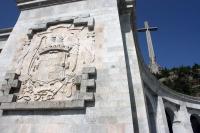 The fact that Franco is buried in sacred land, the Basilica, and his family’s decision to bring the body to Madrid’s Cathedral if he is exhumed from the Valley, a measure they bluntly oppose, has prompted the Government to search unsuccessfully for complicity in the Vatican, scaling up the controversy to a diplomatic realm. The fate of Franco’s body, still today in the Valley, has transformed into a formidable political and memorial arena questioning the ability of Spain’s democracy to defeat once and for all the resilient ghost of its last dictator.
The fact that Franco is buried in sacred land, the Basilica, and his family’s decision to bring the body to Madrid’s Cathedral if he is exhumed from the Valley, a measure they bluntly oppose, has prompted the Government to search unsuccessfully for complicity in the Vatican, scaling up the controversy to a diplomatic realm. The fate of Franco’s body, still today in the Valley, has transformed into a formidable political and memorial arena questioning the ability of Spain’s democracy to defeat once and for all the resilient ghost of its last dictator.
06.04.2019 | by Francisco Ferrándiz
 language embodies the resolutions and contents of its own past as much as its present and future. But language is also a social reality and thus acts as a means of practical communication and by forming subjective awareness. Apart from being one of the basic rights of all human beings (according to the Universal Declaration of Linguistic Rights), using one’s “home language” in social dealings is one of the contradictions arising in the era of globalization.
language embodies the resolutions and contents of its own past as much as its present and future. But language is also a social reality and thus acts as a means of practical communication and by forming subjective awareness. Apart from being one of the basic rights of all human beings (according to the Universal Declaration of Linguistic Rights), using one’s “home language” in social dealings is one of the contradictions arising in the era of globalization.
02.04.2019 | by Inocência Mata
 Even more important are the studies by Lévy-Strauss; by members of the Latin American “decolonality” group such as Eduardo Viveiros de Castro, Walter Mignolo and Aníbal Quijanol; by anthropologists such as Aparecida Vilaça, Yvone de Freitas Leite, Elisa Loncon Antileo and Pedro Niemeyer Cesarino; and by indigenous leaders such as Ailton Krenac. The latter both denounce the extermination of native languages and also study them, trying to record them as far as is still possible. With this intellectual investment they recover the languages’ memory and, with it, a pre-colonial cultural universe.
Even more important are the studies by Lévy-Strauss; by members of the Latin American “decolonality” group such as Eduardo Viveiros de Castro, Walter Mignolo and Aníbal Quijanol; by anthropologists such as Aparecida Vilaça, Yvone de Freitas Leite, Elisa Loncon Antileo and Pedro Niemeyer Cesarino; and by indigenous leaders such as Ailton Krenac. The latter both denounce the extermination of native languages and also study them, trying to record them as far as is still possible. With this intellectual investment they recover the languages’ memory and, with it, a pre-colonial cultural universe.
30.03.2019 | by António Pinto Ribeiro
 Whether in terms of its officially ensconced denial or the radical geopolitical reformulation of Portugal after decolonization, the Colonial War remains historiographically unresolved. The experience of participation in the war is one of the most repressed and complex, but also one of the most tragic, events of Portuguese contemporary life, and it continues to resonate today.
Whether in terms of its officially ensconced denial or the radical geopolitical reformulation of Portugal after decolonization, the Colonial War remains historiographically unresolved. The experience of participation in the war is one of the most repressed and complex, but also one of the most tragic, events of Portuguese contemporary life, and it continues to resonate today.
30.03.2019 | by Margarida Calafate Ribeiro
 The work suggests that another person’s perspective, and their particular capacities, affects the inherited vision. This vision, diminished or amplified, can cloud, obscure, or deform the receiving view; but it may at the same time provoke the heir to explore the ways that their perspective belongs neither only to them, nor any longer only to the bequeather. And this question, which starts with recognising this inheritance, can also be the starting point for other visions.
The work suggests that another person’s perspective, and their particular capacities, affects the inherited vision. This vision, diminished or amplified, can cloud, obscure, or deform the receiving view; but it may at the same time provoke the heir to explore the ways that their perspective belongs neither only to them, nor any longer only to the bequeather. And this question, which starts with recognising this inheritance, can also be the starting point for other visions.
23.03.2019 | by Fátima da Cruz Rodrigues
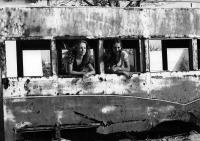 The distance between the writer and the traumatic reality about which they write determines the result of literary attempts to convey the experience of violence. Nevertheless, there are similarities between the artistic representations of memory offered by direct witnesses of events and those re-elaborated by their descendants (those we call post-memories).
The distance between the writer and the traumatic reality about which they write determines the result of literary attempts to convey the experience of violence. Nevertheless, there are similarities between the artistic representations of memory offered by direct witnesses of events and those re-elaborated by their descendants (those we call post-memories).
24.02.2019 | by Felipe Cammaert
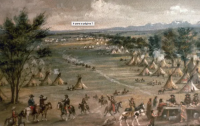 Research finds killing of native people indirectly contributed to a colder period by causing deaths of around 56 million by 1600. European colonization of the Americas resulted in the killing of so many native people that it transformed the environment and caused the Earth’s climate to cool down, new research has found. Settlers killed off huge numbers of people in conflicts and also by spreading disease, which reduced the indigenous population by 90% in the century following Christopher Columbus’s initial journey to the Americas and Caribbean in 1492.
Research finds killing of native people indirectly contributed to a colder period by causing deaths of around 56 million by 1600. European colonization of the Americas resulted in the killing of so many native people that it transformed the environment and caused the Earth’s climate to cool down, new research has found. Settlers killed off huge numbers of people in conflicts and also by spreading disease, which reduced the indigenous population by 90% in the century following Christopher Columbus’s initial journey to the Americas and Caribbean in 1492.
22.02.2019 | by Oliver Milman
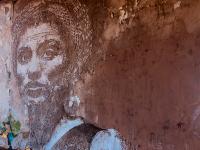 The neologism “artivism” was coined in the 1960s to describe demonstrations against the Vietnam War, as well as student movements and counter-culture. The situationist Guy Debord theorized this conjuncture in his book “The Society of the Spectacle” (1967), in which he argued that it was necessary to overcome existing modes of politics and art, to sabotage the demands of capitalism and to find new modes of art and life. The term reappeared only in the mid-1990s, with the internet revolution, as part of a critical lexicon to describe not only the practice of political art, but also to interrogate what counted as politics and art. In that context, the fundamental question was the transformation of capital into a spectacle, and subsequent artistic problematics.
The neologism “artivism” was coined in the 1960s to describe demonstrations against the Vietnam War, as well as student movements and counter-culture. The situationist Guy Debord theorized this conjuncture in his book “The Society of the Spectacle” (1967), in which he argued that it was necessary to overcome existing modes of politics and art, to sabotage the demands of capitalism and to find new modes of art and life. The term reappeared only in the mid-1990s, with the internet revolution, as part of a critical lexicon to describe not only the practice of political art, but also to interrogate what counted as politics and art. In that context, the fundamental question was the transformation of capital into a spectacle, and subsequent artistic problematics.
12.02.2019 | by Fernanda Vilar
 This reusing of the past requires us to reflect on how traumatic histories are collectively absorbed, and on how histories can be revised, even distorted, when they are reread. When the past is reused, its image is reinscribed through the prism of a particular, usually other, ideology with the intention of evoking a particular past and creating its counter image. This manoeuvre often has hegemonic ambitions, and aims to impact public opinion.
This reusing of the past requires us to reflect on how traumatic histories are collectively absorbed, and on how histories can be revised, even distorted, when they are reread. When the past is reused, its image is reinscribed through the prism of a particular, usually other, ideology with the intention of evoking a particular past and creating its counter image. This manoeuvre often has hegemonic ambitions, and aims to impact public opinion.
02.01.2019 | by Roberto Vecchi
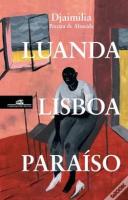 What Djaimilia Pereira de Almeida writes can be understood as a powerful transformation tool regarding the Portuguese human landscape. With it, the painful fragments of a history made up of frustrations and disappointments, of ruptures and withdrawals and of ambiguous felling are not erased, instead they are reunited in a healing coexistence.
What Djaimilia Pereira de Almeida writes can be understood as a powerful transformation tool regarding the Portuguese human landscape. With it, the painful fragments of a history made up of frustrations and disappointments, of ruptures and withdrawals and of ambiguous felling are not erased, instead they are reunited in a healing coexistence.
01.01.2019 | by Inocência Mata
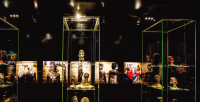 The discussion about the restitution of ethnographic works – be them artistic, documental or human remains – to the countries of origin is not new, but regained prominence two weeks ago with the announcement of Emmanuel Macron’s decision to return a bronze collection to Benin, from where the artworks were taken at the end of the 19th century in a punitive military expedition against the kingdoms of west Africa.
The discussion about the restitution of ethnographic works – be them artistic, documental or human remains – to the countries of origin is not new, but regained prominence two weeks ago with the announcement of Emmanuel Macron’s decision to return a bronze collection to Benin, from where the artworks were taken at the end of the 19th century in a punitive military expedition against the kingdoms of west Africa.
29.12.2018 | by vários
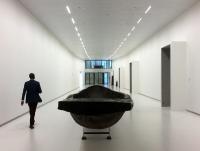 Three options emerged for the museum’s “reorganization”. First, there was the possibility of clearing the museum’s contents and reopening as an empty museum. Second, there was the option of destroying the museum and building a new one. The third tabled choice was to come up with a reinvented museology that would engage with the museum’s history to present a critical view of colonialism.
Three options emerged for the museum’s “reorganization”. First, there was the possibility of clearing the museum’s contents and reopening as an empty museum. Second, there was the option of destroying the museum and building a new one. The third tabled choice was to come up with a reinvented museology that would engage with the museum’s history to present a critical view of colonialism.
23.12.2018 | by António Pinto Ribeiro and Margarida Calafate Ribeiro
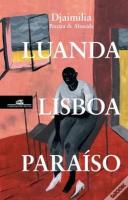 Their story becomes the usual story of many immigrants coming from the old colonies in search of medical treatment or of a better life. In Angola, Cartola was a midwife. In Lisbon, he became a construction janitor, and the city made him indecisive and gloomy. Aquiles, who was still a teenager when he switched country, no longer felt Angolan.
Their story becomes the usual story of many immigrants coming from the old colonies in search of medical treatment or of a better life. In Angola, Cartola was a midwife. In Lisbon, he became a construction janitor, and the city made him indecisive and gloomy. Aquiles, who was still a teenager when he switched country, no longer felt Angolan.
23.12.2018 | by Tatiana Salem Levy
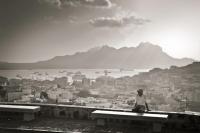 brain drain is a problem. Emigration in Cape Verde is not a bed of roses. In fact, it has created a serious problem of brain drain. One common situation involves young students who decide to study abroad (in Portugal, for example) and do not return to Cape Verde after completion of their university education. According to data between 1997/98 and 2002/2003, about 77% of students (around 5,382) left the country and did not return.
brain drain is a problem. Emigration in Cape Verde is not a bed of roses. In fact, it has created a serious problem of brain drain. One common situation involves young students who decide to study abroad (in Portugal, for example) and do not return to Cape Verde after completion of their university education. According to data between 1997/98 and 2002/2003, about 77% of students (around 5,382) left the country and did not return.
16.12.2018 | by Cláudia Rodrigues
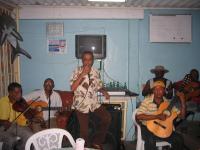 They arrived in Angola 100 years ago. They witnessed the decline of a colonial power that instrumentalized them and the birth of the Angolan nation. The memory of Cape-Verdean immigrants in our country tells a story of oppression and resistance that the creole sociologist Nardi Sousa salvaged and is to publish in a book.
They arrived in Angola 100 years ago. They witnessed the decline of a colonial power that instrumentalized them and the birth of the Angolan nation. The memory of Cape-Verdean immigrants in our country tells a story of oppression and resistance that the creole sociologist Nardi Sousa salvaged and is to publish in a book.
13.12.2018 | by Pedro Cardoso
 Cape Verde is not Africa, Cape Verdeans are “special blacks” and the closest to Portugal. Cape Verde is the country of miscegenation, the “proof” of “racial harmony” of Luso-Tropicalism. For many years, this was the dominant narrative. To be or not to be African continues to be a question.
Cape Verde is not Africa, Cape Verdeans are “special blacks” and the closest to Portugal. Cape Verde is the country of miscegenation, the “proof” of “racial harmony” of Luso-Tropicalism. For many years, this was the dominant narrative. To be or not to be African continues to be a question.
04.12.2018 | by Joana Gorjão Henriques
 Hartman offers new methodological pistes for literary critics working in archives and shows how literary studies can learn from the wayward lives of women like Esther Brown to expand its understandings of creative practices. Reading Hartman reminds us of the political imperative to interrogate spaces and structures of oppression, confinement and conformism from the perspective – speculative if necessary – of those who resist them.
Hartman offers new methodological pistes for literary critics working in archives and shows how literary studies can learn from the wayward lives of women like Esther Brown to expand its understandings of creative practices. Reading Hartman reminds us of the political imperative to interrogate spaces and structures of oppression, confinement and conformism from the perspective – speculative if necessary – of those who resist them.  The increasing centrality of the voices of black and Afro-descendent people in Portugal, speaking out against racism and the inequality of opportunity that it generates, is the best guide to how to reconfigure an ancestry that deserves to be revived and reinvented.
The increasing centrality of the voices of black and Afro-descendent people in Portugal, speaking out against racism and the inequality of opportunity that it generates, is the best guide to how to reconfigure an ancestry that deserves to be revived and reinvented.  Os “Congos” foram vários e o “Congoísmo” revelou-se maleável na forma e conteúdo, mas estável na utilidade. Assim sendo, a invocação da sua história e da sua memória só pode ser muito cautelosa. Aspecto importante, requer ainda que se considere a sua história não-europeia, a sua natureza transnacional, transregional e transatlântica, mas também no próprio continente africano. Que não se anule diversidade de actores, instituições, “discursos” e imagens, motivações e interesses.
Os “Congos” foram vários e o “Congoísmo” revelou-se maleável na forma e conteúdo, mas estável na utilidade. Assim sendo, a invocação da sua história e da sua memória só pode ser muito cautelosa. Aspecto importante, requer ainda que se considere a sua história não-europeia, a sua natureza transnacional, transregional e transatlântica, mas também no próprio continente africano. Que não se anule diversidade de actores, instituições, “discursos” e imagens, motivações e interesses.  Reflection on the transgenerational dimensions of the notion of memory is, however, of course, much earlier than Hirsch’s proposal. In particular in Holocaust literature, the construction of a memory of the “not-lived”, characteristic of the postmemorial gesture, builds up a model that can be abundantly traced and that, precisely due to the power of the paradigm of confrontation with the Holocaust or the ensemble of studies on violence, trauma and memory, deserves particular attention.
Reflection on the transgenerational dimensions of the notion of memory is, however, of course, much earlier than Hirsch’s proposal. In particular in Holocaust literature, the construction of a memory of the “not-lived”, characteristic of the postmemorial gesture, builds up a model that can be abundantly traced and that, precisely due to the power of the paradigm of confrontation with the Holocaust or the ensemble of studies on violence, trauma and memory, deserves particular attention.  The fact that Franco is buried in sacred land, the Basilica, and his family’s decision to bring the body to Madrid’s Cathedral if he is exhumed from the Valley, a measure they bluntly oppose, has prompted the Government to search unsuccessfully for complicity in the Vatican, scaling up the controversy to a diplomatic realm. The fate of Franco’s body, still today in the Valley, has transformed into a formidable political and memorial arena questioning the ability of Spain’s democracy to defeat once and for all the resilient ghost of its last dictator.
The fact that Franco is buried in sacred land, the Basilica, and his family’s decision to bring the body to Madrid’s Cathedral if he is exhumed from the Valley, a measure they bluntly oppose, has prompted the Government to search unsuccessfully for complicity in the Vatican, scaling up the controversy to a diplomatic realm. The fate of Franco’s body, still today in the Valley, has transformed into a formidable political and memorial arena questioning the ability of Spain’s democracy to defeat once and for all the resilient ghost of its last dictator.  language embodies the resolutions and contents of its own past as much as its present and future. But language is also a social reality and thus acts as a means of practical communication and by forming subjective awareness. Apart from being one of the basic rights of all human beings (according to the Universal Declaration of Linguistic Rights), using one’s “home language” in social dealings is one of the contradictions arising in the era of globalization.
language embodies the resolutions and contents of its own past as much as its present and future. But language is also a social reality and thus acts as a means of practical communication and by forming subjective awareness. Apart from being one of the basic rights of all human beings (according to the Universal Declaration of Linguistic Rights), using one’s “home language” in social dealings is one of the contradictions arising in the era of globalization.  Even more important are the studies by Lévy-Strauss; by members of the Latin American “decolonality” group such as Eduardo Viveiros de Castro, Walter Mignolo and Aníbal Quijanol; by anthropologists such as Aparecida Vilaça, Yvone de Freitas Leite, Elisa Loncon Antileo and Pedro Niemeyer Cesarino; and by indigenous leaders such as Ailton Krenac. The latter both denounce the extermination of native languages and also study them, trying to record them as far as is still possible. With this intellectual investment they recover the languages’ memory and, with it, a pre-colonial cultural universe.
Even more important are the studies by Lévy-Strauss; by members of the Latin American “decolonality” group such as Eduardo Viveiros de Castro, Walter Mignolo and Aníbal Quijanol; by anthropologists such as Aparecida Vilaça, Yvone de Freitas Leite, Elisa Loncon Antileo and Pedro Niemeyer Cesarino; and by indigenous leaders such as Ailton Krenac. The latter both denounce the extermination of native languages and also study them, trying to record them as far as is still possible. With this intellectual investment they recover the languages’ memory and, with it, a pre-colonial cultural universe.  Whether in terms of its officially ensconced denial or the radical geopolitical reformulation of Portugal after decolonization, the Colonial War remains historiographically unresolved. The experience of participation in the war is one of the most repressed and complex, but also one of the most tragic, events of Portuguese contemporary life, and it continues to resonate today.
Whether in terms of its officially ensconced denial or the radical geopolitical reformulation of Portugal after decolonization, the Colonial War remains historiographically unresolved. The experience of participation in the war is one of the most repressed and complex, but also one of the most tragic, events of Portuguese contemporary life, and it continues to resonate today.  The work suggests that another person’s perspective, and their particular capacities, affects the inherited vision. This vision, diminished or amplified, can cloud, obscure, or deform the receiving view; but it may at the same time provoke the heir to explore the ways that their perspective belongs neither only to them, nor any longer only to the bequeather. And this question, which starts with recognising this inheritance, can also be the starting point for other visions.
The work suggests that another person’s perspective, and their particular capacities, affects the inherited vision. This vision, diminished or amplified, can cloud, obscure, or deform the receiving view; but it may at the same time provoke the heir to explore the ways that their perspective belongs neither only to them, nor any longer only to the bequeather. And this question, which starts with recognising this inheritance, can also be the starting point for other visions.  The distance between the writer and the traumatic reality about which they write determines the result of literary attempts to convey the experience of violence. Nevertheless, there are similarities between the artistic representations of memory offered by direct witnesses of events and those re-elaborated by their descendants (those we call post-memories).
The distance between the writer and the traumatic reality about which they write determines the result of literary attempts to convey the experience of violence. Nevertheless, there are similarities between the artistic representations of memory offered by direct witnesses of events and those re-elaborated by their descendants (those we call post-memories).  Research finds killing of native people indirectly contributed to a colder period by causing deaths of around 56 million by 1600. European colonization of the Americas resulted in the killing of so many native people that it transformed the environment and caused the Earth’s climate to cool down, new research has found. Settlers killed off huge numbers of people in conflicts and also by spreading disease, which reduced the indigenous population by 90% in the century following Christopher Columbus’s initial journey to the Americas and Caribbean in 1492.
Research finds killing of native people indirectly contributed to a colder period by causing deaths of around 56 million by 1600. European colonization of the Americas resulted in the killing of so many native people that it transformed the environment and caused the Earth’s climate to cool down, new research has found. Settlers killed off huge numbers of people in conflicts and also by spreading disease, which reduced the indigenous population by 90% in the century following Christopher Columbus’s initial journey to the Americas and Caribbean in 1492.  The neologism “artivism” was coined in the 1960s to describe demonstrations against the Vietnam War, as well as student movements and counter-culture. The situationist Guy Debord theorized this conjuncture in his book “The Society of the Spectacle” (1967), in which he argued that it was necessary to overcome existing modes of politics and art, to sabotage the demands of capitalism and to find new modes of art and life. The term reappeared only in the mid-1990s, with the internet revolution, as part of a critical lexicon to describe not only the practice of political art, but also to interrogate what counted as politics and art. In that context, the fundamental question was the transformation of capital into a spectacle, and subsequent artistic problematics.
The neologism “artivism” was coined in the 1960s to describe demonstrations against the Vietnam War, as well as student movements and counter-culture. The situationist Guy Debord theorized this conjuncture in his book “The Society of the Spectacle” (1967), in which he argued that it was necessary to overcome existing modes of politics and art, to sabotage the demands of capitalism and to find new modes of art and life. The term reappeared only in the mid-1990s, with the internet revolution, as part of a critical lexicon to describe not only the practice of political art, but also to interrogate what counted as politics and art. In that context, the fundamental question was the transformation of capital into a spectacle, and subsequent artistic problematics.  This reusing of the past requires us to reflect on how traumatic histories are collectively absorbed, and on how histories can be revised, even distorted, when they are reread. When the past is reused, its image is reinscribed through the prism of a particular, usually other, ideology with the intention of evoking a particular past and creating its counter image. This manoeuvre often has hegemonic ambitions, and aims to impact public opinion.
This reusing of the past requires us to reflect on how traumatic histories are collectively absorbed, and on how histories can be revised, even distorted, when they are reread. When the past is reused, its image is reinscribed through the prism of a particular, usually other, ideology with the intention of evoking a particular past and creating its counter image. This manoeuvre often has hegemonic ambitions, and aims to impact public opinion.  What Djaimilia Pereira de Almeida writes can be understood as a powerful transformation tool regarding the Portuguese human landscape. With it, the painful fragments of a history made up of frustrations and disappointments, of ruptures and withdrawals and of ambiguous felling are not erased, instead they are reunited in a healing coexistence.
What Djaimilia Pereira de Almeida writes can be understood as a powerful transformation tool regarding the Portuguese human landscape. With it, the painful fragments of a history made up of frustrations and disappointments, of ruptures and withdrawals and of ambiguous felling are not erased, instead they are reunited in a healing coexistence.  The discussion about the restitution of ethnographic works – be them artistic, documental or human remains – to the countries of origin is not new, but regained prominence two weeks ago with the announcement of Emmanuel Macron’s decision to return a bronze collection to Benin, from where the artworks were taken at the end of the 19th century in a punitive military expedition against the kingdoms of west Africa.
The discussion about the restitution of ethnographic works – be them artistic, documental or human remains – to the countries of origin is not new, but regained prominence two weeks ago with the announcement of Emmanuel Macron’s decision to return a bronze collection to Benin, from where the artworks were taken at the end of the 19th century in a punitive military expedition against the kingdoms of west Africa.  Three options emerged for the museum’s “reorganization”. First, there was the possibility of clearing the museum’s contents and reopening as an empty museum. Second, there was the option of destroying the museum and building a new one. The third tabled choice was to come up with a reinvented museology that would engage with the museum’s history to present a critical view of colonialism.
Three options emerged for the museum’s “reorganization”. First, there was the possibility of clearing the museum’s contents and reopening as an empty museum. Second, there was the option of destroying the museum and building a new one. The third tabled choice was to come up with a reinvented museology that would engage with the museum’s history to present a critical view of colonialism.  Their story becomes the usual story of many immigrants coming from the old colonies in search of medical treatment or of a better life. In Angola, Cartola was a midwife. In Lisbon, he became a construction janitor, and the city made him indecisive and gloomy. Aquiles, who was still a teenager when he switched country, no longer felt Angolan.
Their story becomes the usual story of many immigrants coming from the old colonies in search of medical treatment or of a better life. In Angola, Cartola was a midwife. In Lisbon, he became a construction janitor, and the city made him indecisive and gloomy. Aquiles, who was still a teenager when he switched country, no longer felt Angolan.  brain drain is a problem. Emigration in Cape Verde is not a bed of roses. In fact, it has created a serious problem of brain drain. One common situation involves young students who decide to study abroad (in Portugal, for example) and do not return to Cape Verde after completion of their university education. According to data between 1997/98 and 2002/2003, about 77% of students (around 5,382) left the country and did not return.
brain drain is a problem. Emigration in Cape Verde is not a bed of roses. In fact, it has created a serious problem of brain drain. One common situation involves young students who decide to study abroad (in Portugal, for example) and do not return to Cape Verde after completion of their university education. According to data between 1997/98 and 2002/2003, about 77% of students (around 5,382) left the country and did not return.  They arrived in Angola 100 years ago. They witnessed the decline of a colonial power that instrumentalized them and the birth of the Angolan nation. The memory of Cape-Verdean immigrants in our country tells a story of oppression and resistance that the creole sociologist Nardi Sousa salvaged and is to publish in a book.
They arrived in Angola 100 years ago. They witnessed the decline of a colonial power that instrumentalized them and the birth of the Angolan nation. The memory of Cape-Verdean immigrants in our country tells a story of oppression and resistance that the creole sociologist Nardi Sousa salvaged and is to publish in a book.  Cape Verde is not Africa, Cape Verdeans are “special blacks” and the closest to Portugal. Cape Verde is the country of miscegenation, the “proof” of “racial harmony” of Luso-Tropicalism. For many years, this was the dominant narrative. To be or not to be African continues to be a question.
Cape Verde is not Africa, Cape Verdeans are “special blacks” and the closest to Portugal. Cape Verde is the country of miscegenation, the “proof” of “racial harmony” of Luso-Tropicalism. For many years, this was the dominant narrative. To be or not to be African continues to be a question. 
